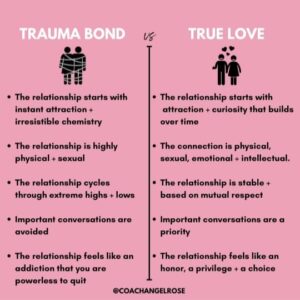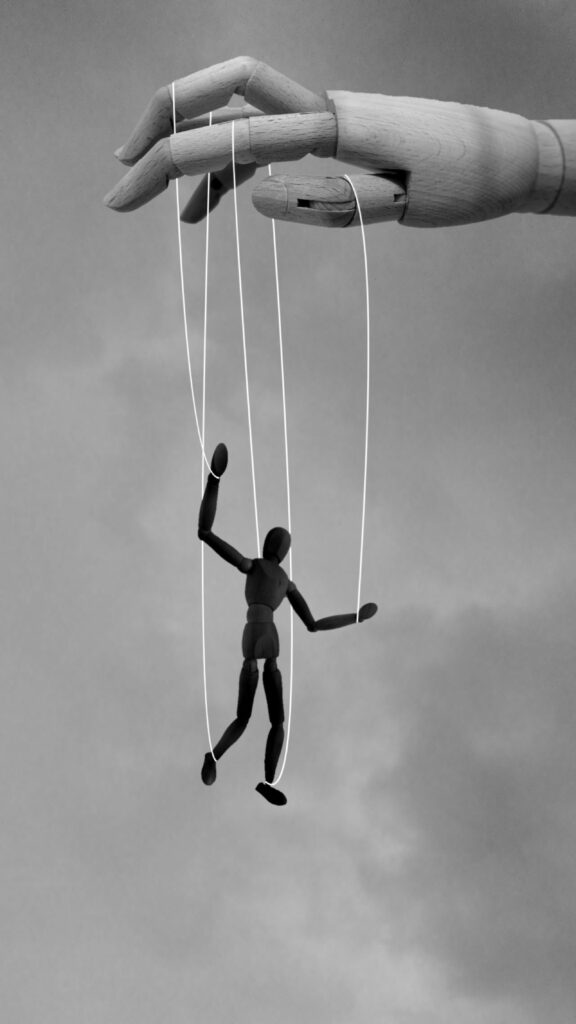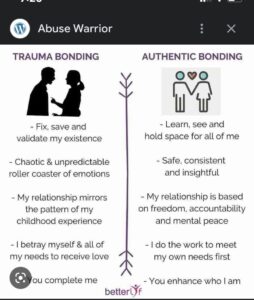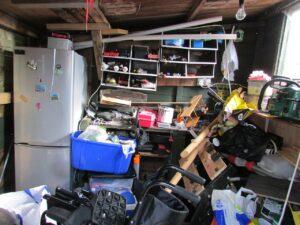Guest post by Jennifer Mehochko, LCPC
The turn of the clock into a new year can be exciting and an opportunity to shift toward greater health. One area of your life that you can begin to look at is your relationships. Are they healthy? And how do I know if they’re not? Learning more about trauma bonds in relationships can be a game-changing way to discern if your relationships are healthy or unhealthy.
Trauma Bond Definition
So what exactly is a trauma bond? According to SaferPlaces Domestic & Support Services, “a trauma bond is a connection between an abusive person and the individual they abuse. It is reflective of an attachment created by repeating physical or emotional trauma with positive reinforcement. It can be hard to spot and even harder to break free from.”
A person can be in a trauma-bonded relationship with anyone – a family member, a significant other, a coworker, or a friend – and partners can often be trauma-bonded.
Psychologist Nadine Macaluso, LMFT, notes that “a trauma bond occurs when your partner intentionally harms you through a pattern of threats, intimidation, manipulation, deceit, or betrayal so they have power or control”.
Image credit: https://abusewarrior.com
Stages of Trauma Bonding
The seven stages of trauma bonding are:
1) Love bombing – the sudden, intense attempt to create a “we” in a relationship through high praise and excessive flattery
2) Trust & Dependency
3) Criticism
4) Manipulation & Gaslighting
5) Resignation & Giving up
6) Loss of Self
7) Addiction to the Cycle
Because the love-bombing first stage of trauma bonding is so intense, it quickly leads to the trust and dependency in the second stage. That foundation leads you to begin to agree with the abusive person in just about everything – including the abuser’s reasons for treating you badly. It’s like a type of brainwashing, where you don’t even realize that your beliefs about how you’re being treated are distorted.
For example, you may believe you are unworthy of standing up for yourself, or that it is impossible to set b oundaries with the abuser. And if you grew up around others who have acted in these types of ways, it may feel familiar or comfortable to you.
oundaries with the abuser. And if you grew up around others who have acted in these types of ways, it may feel familiar or comfortable to you.
Dopamine is the main brain chemical fueling trauma bonding. The “love bombing” stage of these relationships activates all of the dopamine-rich pleasure centers of the brain, much like a cocaine high would produce. So after the “high” wears off, the need for dopamine has you most likely seeking out the abusive person to produce the intense brain chemical reaction, again and again. This makes it extremely difficult to detach from the unhealthy person, aka the “source” of your “high.”
Image credit: https://instagram.com/coachangelrose
Married to Someone with Childhood Trauma? How it Affects Relationships
Trauma Bond Signs in a Relationship
We all want emotional connection and security in our partner relationships. You meet a person who seems capable of providing what you need, and in fact, seems incredibly loving. It can feel “too good to be true.” It’s important to pay attention to that because if you had insecure attachments growing up, this will cause you to move toward someone who “feels familiar” to your nervous system. Under that shiny “too good to be true” veneer, your nervous system already spotted the familiar signs of insecure attachment and is drawn to that familiarity. So when that other person slowly shows their true colors and reveals their own lack of secure attachment in their abusive behavior, your nervous system is not surprised. Trauma bond relationships are driven by fear, not love, which is the biggest differentiator between trauma bonds and love.
According to choosingtherapy.com the biggest trauma bond signs to look out for in a relationship are:
- The relationship moving at a fast pace
- Oversharing or sharing information about yourself too soon
- Love-bombing or being overly loving or affectionate
- Losing friendships or other connections due to the relationship
- The relationship consuming all of your time
- No alone time or personal space
- Fear of leaving the relationship
- Making changes in your life and/or finances for the relationship
3 Ways Childhood Trauma can Affect Adult Relationships
Therapy for Trauma Bonding
What should you do when you notice these signs/symptoms in your relationship? All Points North Mental Health recommends the following:
- Do get professional support from a trauma-informed therapist who understands the complexities of this dynamic
- Educate yourself – watch videos, read articles, books, etc about trauma bonding
- Focus on the here and now – ground yourself in reality vs the fantasy of what you think the person “can become”
- Create some space for yourself – step back and take some distance to see what the relationship may really be like
- Find support from others, such as a support group or trusted friend
- Practice good self-care – examples might be exercise journaling, hobbies, music, relaxation/meditation/prayer, massage, eating well, getting good sleep, spending time with trusted friends or family
- Develop healthy relationships
- Give yourself permission to grieve and heal
- Be kind to yourself
Some resources on this topic that may be helpful to you are:
- Ross Rosenberg’s book, The Human Magnet Syndrome
- Les Carter on YouTube: Breaking the Trauma Bonds with a Narcissist
- Ramani on YouTube: Trauma Bombing and Self-Blame
- Seacoast Church on YouTube: The Seven Stages of Traumabombing
- Lisa A. Romano on YouTube: 10 Secrets for Breaking the Codependency Spell
- Kenny Weiss on YouTube
Therapists at Life Care Wellness can help with your trauma bonding recovery. If you’re in Illinois, please reach out to us in our Glen Ellyn, Chicago (Jefferson Park), Sycamore, or Yorkville locations.
Jennifer Mehochko, LCPC, SEP believes in a holistic approach to therapy. She integrates traditional talk therapy with experiential therapies that aid in better self-regulation, healing, and overall relief of symptoms. She is trained in EMDR and is a Somatic Experiencing Practitioner (SEP). Jennifer specializes in biologically-based healing, which assists in resolving trauma symptoms that are frozen or stuck in the body. She practices in the Yorkville office of Life Care Wellness.






